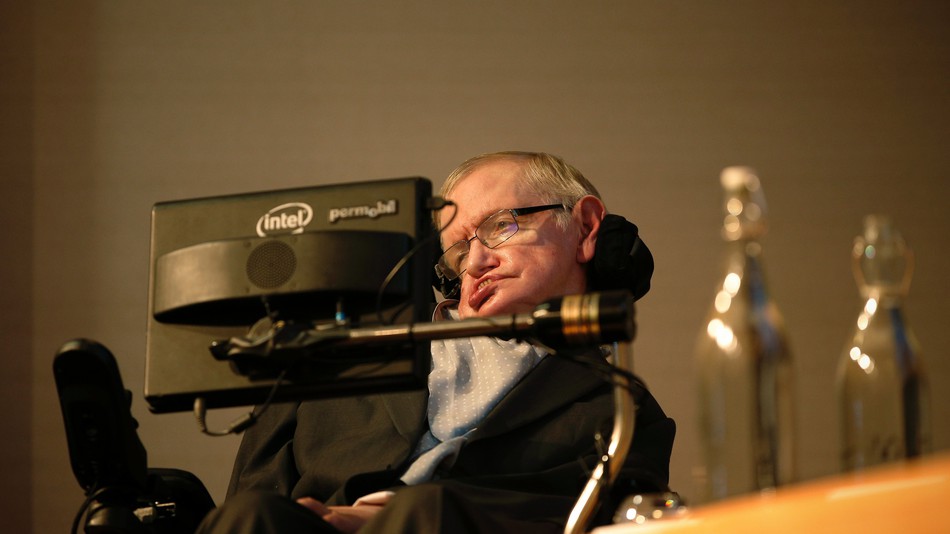
Celebrated internationally cosmologist Stephen Hawking, who passed away early Wednesday at 76 years old, was a one of a kind open figure, one who straddled the line between logical expert and big name with deft, smart care. He was the nearest the world had to a science minister.
I’m not a hypothetical physicist, nor do I have a degree in the hard sciences. Yet, that didn’t prevent me from appreciating Hawking for a large portion of my life. His books, addresses, and flighty media appearances all influenced me to give careful consideration to how he saw the world.
1. Grand Unified Theory
When I read Hawking’s A Brief History of Time at the young age of 19, I had at no other time knew about the scan for a Grand Unified Theory.
From him I discovered that nuclear and subatomic particles appear to act as per unexpected hypothetical laws in comparison to tremendous bodies like planets and stars. A development in hypothetical material science has spun around endeavoring to shape a bringing together hypothesis, which entwines the two apparently unique arrangement of laws. Selling was at the cutting edge at this development.
This is an extraordinarily shortsighted method for depicting a profoundly complex hypothetical situation. Yet at the same time, it knocked my socks off. For as long as 15 years, I’ve regularly considered this serious confuse. I’m sure I couldn’t offer any assistance to him or the groups of more quick witted minds than mine chipping away at it. However, regardless I feel thankful to think about it.
2. Heat can escape black holes
You most likely know the well known thought that nothing can get away from the extraordinary gravitational draw of a dark opening. All things considered, Hawking suspected something. He ascertained that the gigantic vacuum made by a dark gap isn’t really vacant.
In 1974, Hawking exhibited his hypothesis that dark gaps really emanate dark body radiation from just past the occasion skyline. It’s a hypothesis called Hawking radiation, and however it hasn’t been totally confirmed, a work area dark gap in Italy discovered promising confirmation in 2010 that his hypothesis may be right.
3. Humans need to leave Earth, stat
Towards the finish of his life, Hawking developed more vocal about our need to discover other, extraterrestrial living spaces. Mankind’s deplete on characteristic assets, the danger of environmental change, and worries around overpopulation drove the researcher to beg our Earth-bound species to move.
As of late as last November, Hawking cautioned we may just have 600 years left on an inhabitable planet and focused on the need to “strikingly go where nobody has gone previously.”
Peddling was a standout amongst the most unmistakable and persuasive speakers on the basic to put resources into space travel. Much obliged to you for that, Dr. Peddling.
4. AI is seriously scary
The last several years have seen global intellectual luminaries pointing at the falling sky of an oncoming artificial intelligence (AI) revolution, warning the world that we should be careful how much agency we give our technology.
Hawking was one of the loudest to extol the severe dangers that may lie ahead for our desire to create smarter computation. He pleaded last year for creators of artificial intelligence to make cautious decisions on their research, otherwise AI might become, “the worst event in the history of our civilization.”
5. Comedy and intelligence go hand in hand
I saw Stephen Hawking’s brief and amusing cameo in The Simpsons when I was as yet an adolescent and it showed me yet another important lesson.
Up to that point in my life, I had never drawn an examination amongst insight and satire. Something about Hawking’s senseless, genial, and self-belittling appearance on that toon flipped a switch in my mind about the adaptability of what “knowledge” implies.
It appears like a characteristic lesson that numerous learn early, however for me, Hawking’s ready and sudden appearance opened my eyes. For a youthful, receptive child uncertain about how individuals should act, I think affectionately on his comedic turn. It extended my thoughts on the most proficient method to see others and how to give others a chance to see me.
Rest in peace, Stephen Hawking. You implied a ton to numerous individuals, and I’m cheerful to be incorporated some place in that gathering.
Original article by Peter Allen Clark